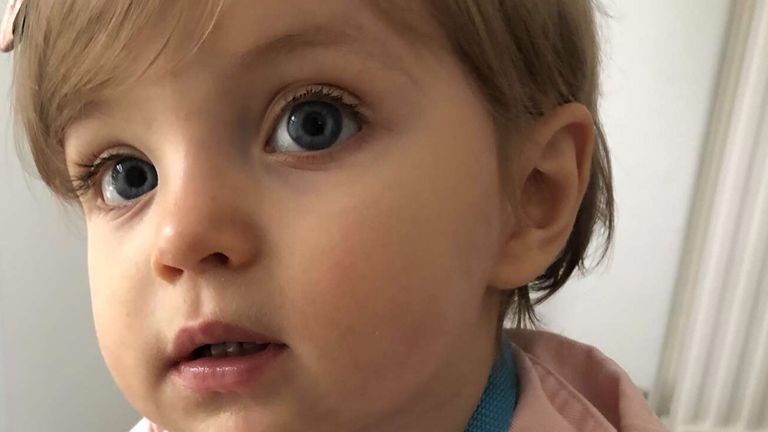Sara Sharif murder is 'heartbreaking reminder' of 'profound ...
We have been here before and each time we have said "never again".
Reacting to the verdicts, the children's commissioner for England Dame Rachel de Souza said "no child at risk of abuse should be home-educated".

She told Sky News: "We need justice and we need action from the government and from children's social care with a set of real actions. Clearly, she was totally let down."
Ms de Souza called for the government to introduce a unique identifier for children and share data on them between the various children's services.
She added: "This little girl was identified by the school as being at risk of abuse and then was allowed to be home-educated. No child at risk of abuse should be home-educated and we should have a home register.
"If Sara's life means anything, those things will protect children. They need to be done now."
Read more on Sara Sharif verdicts:Father and stepmother guilty of murder
Leading safeguarding expert Simon Bailey told Sky News about missed opportunities by authorities to intervene.
"Quite clearly the system failed her because she tragically died at a very, very young age where all the indications are that it could have been averted," he said.

Mr Bailey, a former National Police Chiefs' Council lead for child protection, blamed "not enough professional curiosity" among social workers.
"Did they truly understand the significance of the harm that she was facing and that ultimately saw the appalling injuries that she sustained?" he asked. "Was information shared effectively?"
Image: Sara during reception year. Pic: Surrey Police
There had been previous allegations of abuse against both of Sara's parents.
At birth in 2013 she was made the subject of a child protection plan, something that happens when children are deemed to be at risk.
Image: Pic: Surrey Police
The following year her parents separated. Sara was taken into foster care, before being returned first to her father, and then her mother, as each parent accused the other of abuse.
Four years later, in 2019, a battle in the family court led to Sara's father, Urfan Sharif, being awarded custody.

Image: Pic: Surrey Police
Then, in March 2023, Sara's school made a referral to Surrey social services. Teachers had become concerned about bruises on her face.
She'd given different explanations for them to two members of staff.
Read more:Sara 'never smiled once' in months before death, jury told
Social workers contacted Sara's father to tell him they were investigating, before running a multi-agency check on her background. The case was closed six days later.
Mr Bailey said that decision will need to be scrutinised.
"They should then have looked at the cumulative risk that Sara might have been exposed to, inevitably was being exposed to, and should then have been able to make a decision to mitigate those risks and considered what those child protection arrangements should look like," he said.
Please use Chrome browser for a more accessible video player
That April, Sharif withdrew Sara from school. Months later she was dead.

The deaths of children who were known to social services have prompted major national reviews in recent years.
A report published the year before Sara's death investigated the failures of social services in Solihull and Bradford to protect Arthur Labinjo Hughes, who died aged 7, and one-year-old Star Hobson.
Image: Arthur Labinjo-Hughes. Pic: Olivia Labinjo-Halcrow/PA
Image: Star Hobson. Pic: Handout from aunt Alicia Szepler
Star's family believe lessons don't appear to have been learnt.
Her great-grandfather David Fawcett asked: "How can this still keep on happening?"
"It's been four years since we lost Star and I don't even want to think about the number of children that have lost their lives in that four years," her aunt, Alicia Szepler, told Sky News.
Please use Chrome browser for a more accessible video player

Dr Ciaran Murphy, from the Association of Child Protection Professionals, said social workers are coming under increasing pressure.
"When practitioners are being faced with 40, 50, 60 cases a day, they are naturally going to be prioritising and there are going to be errors of judgement," he said.
"The massive increase in demand has come about over the last 15 years, particularly because of cuts to public services and public spending, which meant that there are less services supporting families, more families are being pushed into the system, increased demand for social workers.
"One of the big issues that we have to confront is we are not investing enough in the child protection system in terms of monetary spending."
Now the trial has concluded an independent safeguarding review will examine what more could have been done to protect Sara.

Rachael Wardell, the executive director responsible for children's social services at Surrey County Council, said: "Sara's death is incredibly distressing and we share in the profound horror at the terrible details that have emerged during the trial.
"We are resolute in our commitment to protecting children, and we are determined to play a full and active part in the forthcoming review alongside partner agencies to thoroughly understand the wider circumstances surrounding Sara's tragic death."
In a statement, Ms de Souza said the case highlights "profound weaknesses in our child protection system".
She said: "Even before she [Sara Sharif] was born, she was known to social care - and yet she fell off their radar so entirely that by the time she died, she was invisible to them all."
"Sara was failed in the starkest terms by the safety net of services around her," she added.
Ms de Souza has called for a series of reforms including "proper oversight" for children, like Sara, being home-schooled.
"We can have no more reviews, no more strategies, no more debate. When we say 'never again', we have to mean it - let that be Sara's legacy," she said.













































